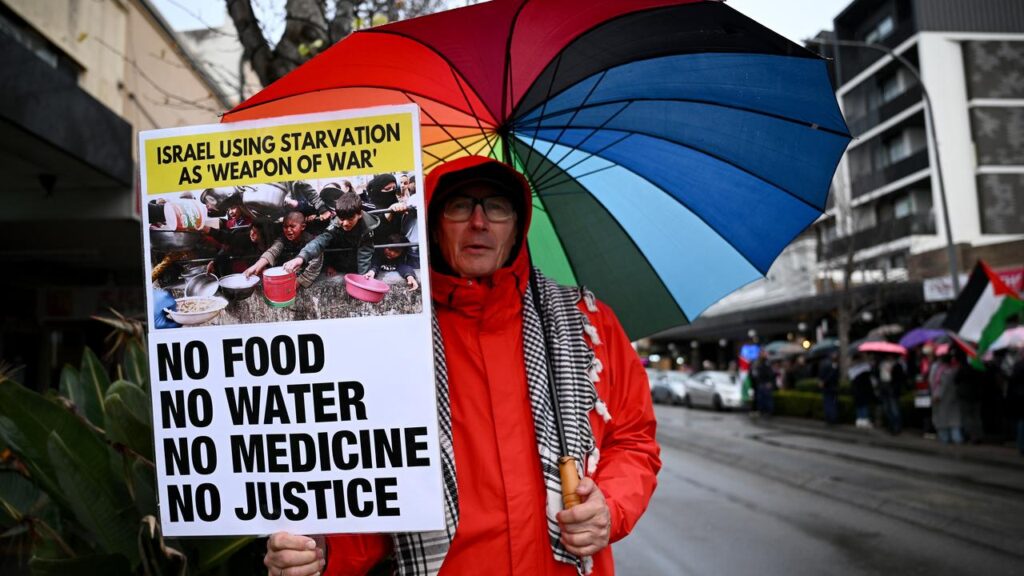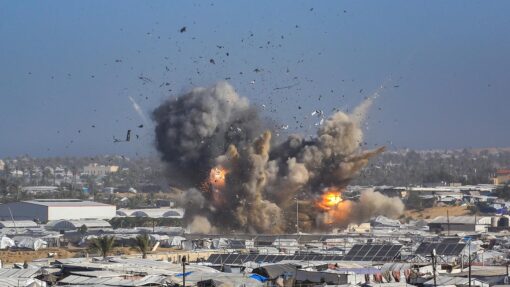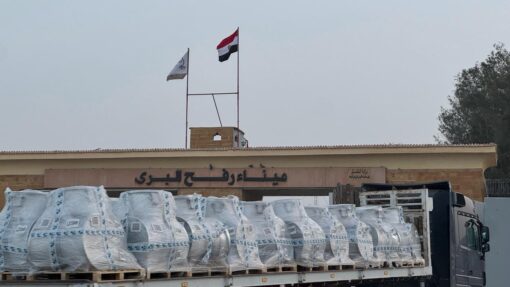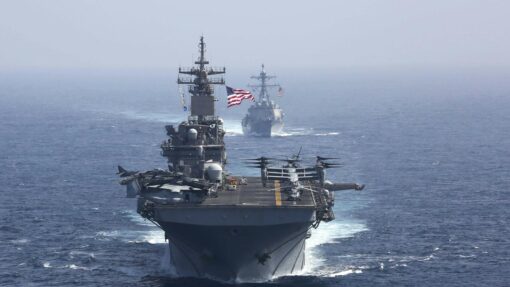Families of Australians in Gaza flotilla plead for help
Kat Wong |

Hudayfa and Hajar Rafiq haven’t heard from their brother since he was detained by Israel – and Australia is struggling to provide answers.
Sydney man Abubakir Rafiq is one of five Australians believed to be in custody after Israeli forces on Thursday and Friday intercepted Gaza-bound vessels attempting to deliver aid as part of the Global Sumud Flotilla.
The Department of Foreign Affairs and Trade (DFAT) has made a formal request to Israeli authorities for consular access to Australian citizens and information about how they have been detained.
But it has not been able to offer much to the families of those detained.
“We haven’t had much sleep,” Hudayfa Rafiq told a press conference with Greens senator Mehreen Faruqi in Sydney on Friday.
“We are worried for the well-being of my brother as well as the other Australians.
“The information we have from DFAT is that they have mobilised all these resources … but it sounds like the Israelis are making things very difficult.”
Consular assistance could include visits to prisons to monitor welfare, liaising with local authorities about their wellbeing, providing local legal contacts and assistance with communication between family members.

But the department has not even been able to confirm how many Australians are being held by Israel after the interceptions, according to Mr Rafiq.
Victorian woman Julie Webb-Pullman, whose daughter was aboard an intercepted vessel, told AAP the department was having difficulty contacting officials because of the Yom Kippur holiday in Israel.
Footage livestreamed from Bianca Webb-Pullman’s boat on Thursday showed officers boarding with weapons raised as life jacket-clad passengers raised their hands.
Other Australians believed to have been intercepted include Juliet Lamont, Hamish Paterson and Surya McEwen.
Israel’s Foreign Ministry, which has branded the flotilla’s mission a “provocation”, says all are “safe and in good health” and will soon be deported to Europe.
Health Minister Mark Butler said he sympathised with Australians’ concerns but he reiterated government advice not to travel to the region.
“I get that Australians want to see aid flow, particularly basic aid like food and medicines to civilians in Gaza,” Mr Butler told Sunrise.
“We have provided clear advice for Australians not to take part in these attempts to break the naval blockade because of the obvious safety risks.”
DFAT continues to urge Israel to enable the flow of humanitarian aid into Gaza and called for all parties to respect international law.
But many are pushing Australia to do more.

“The Australian government needs to be stepping up to the plate, defending its Australian citizens, ensuring that they are being treated well,” Mr Rafiq’s sister Hajar Rafiq said.
“This is a mission that they should have never had to go on.
“But unfortunately, due to the failure of global governments everywhere to step up and stop a genocide, we have ordinary citizens who are risking their lives to deliver basic necessities to a starving population.”
Famine has been declared in the territory since August and more than 641,000 people face catastrophic levels of food insecurity, according to the United Nations figures.

Liberal senator Jane Hume urged concerned Australians to help through aid organisations.
But many are struggling to deliver food and medicine because Israel has continued to throttle aid into Gaza.
Israel’s continued bombing has also posed challenges.
Medicines Sans Frontières on Thursday mourned another staff member killed in an Israeli attack on Gaza.
That came a day after the International Committee of the Red Cross suspended operations in Gaza City on safety grounds, saying civilians were being killed and forcibly displaced.
AAP


